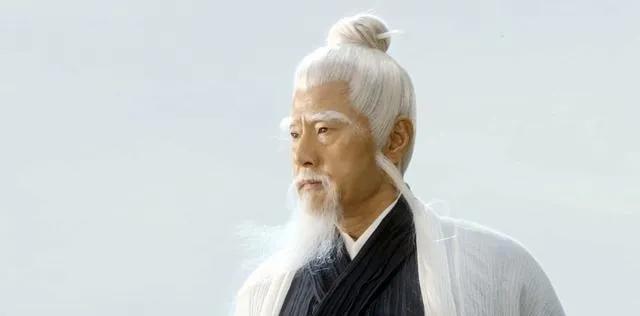CCTV's eighth set is the popular TV series "Sword Line in the Snow", there is a character who can call the wind and rain, the magic of the character called Wang Xianzhi, just look at this name, I thought it was the salt dealer Wang Xianzhi who fought side by side with the Yellow Nest, the more I looked at it, the less it looked, hurry up to make up for the historical knowledge of the end of the Tang Dynasty, everyone is interested can look at my following reading notes.

In history, there is indeed Wang Xianzhi, who was the leader of the peasant rebel army at the end of the Tang Dynasty, and at that time was a figure who shook the world and made the Tang Emperor panic for the rest of his life, and Wang Xianzhi in today's TV series "Sword In the Snow" is not a person at all, and can only be said that the TV series was imagined by the author out of thin air.
Wang Xianzhi (?) ~878), a native of Puzhou (濮州; present-day juanchengbei, Shandong). Leader of the peasant rebel army at the end of the Tang Dynasty. The peasant uprisings of Wang Xianzhi and Huangchao, which he first launched, played an important role in cracking down on the nobles, bureaucrats, and magnates, and opposing decadent rule.
Wang Xianzhi is engaged in the business of selling salt, and her life is hard and well-informed. In November of the first year of Tang Qianfu (874), under the situation of boiling public resentment and increasing uprising, Wang Xianzhi led thousands of people to rise up in Changyuan (長垣, in present-day Changyuan, Henan), claiming to be the general of Junping Tian, and the capital of the haihe. The rebels soon occupied the county seat of Changyuan County, and the following year they conquered Puzhou (濮州, in modern Juancheng, Shandong) and Cao Prefecture (曹州, in modern Heze, Shandong). The people participated in the uprising, and the number of troops grew to tens of thousands, and the momentum was unstoppable. At this time, another salt merchant, Huang Chao, also joined his command.
In the third year of the uprising, the rebel army won a great victory at Ruzhou (汝州, in modern Ruzhou, Henan), and the rebel army gave full play to the advantages of guerrilla warfare and eliminated the superior strength of the Tang army in the movement, and the anti-Tang struggle developed rapidly. Later, Emperor Tang adopted the dual strategy of suppression and surrender, and was canonized as "Zuo Shen CeJun Ya and Inspector Of Imperial History." Wang Xianzhi was shaken twice, and for the first time Huang Chao resolutely opposed it, scolding Wang Xianzhi: "Shiwu and Ru made a great oath together and ran amok in the world." Now that Ru has taken the officials alone, what will these five thousand or so people care about? Huang Chao led 2,000 men and horses to the north and fought with Wang Xianzhi in two places.
Because of this zhao'an, Huang Chao and Wang Xianzhi's choices were very different, Wang Xianzhi was inclined to recruit an, but Huang Chao was more inclined to continue the uprising and overthrow the Tang Dynasty. The two broke up unhappily, and the Tang Dynasty thus alienated the coordinated combat effectiveness of the two and the affiliated rebel armies.
When Wang Xianzhi turned to attack Yingzhou (郢州, in present-day Wuchang, Wuhan), the Tang Dynasty summoned the deputy governor Yang Fuguang to surrender again, and Wang Xianzhi sent Shang Junchang, Chu Yanwei, and others to surrender, and was kidnapped by Song Wei in the middle of the way. Song Wei was greedy for merit and vainly reported victory, and Shang Junchang and others were transferred to Chang'an and killed. Wang Xianzhi was furious, and the matter of surrendering the enemy was once again attempted. In the fifth year of Qianfu (878), he was surrounded by Zeng Yuanyu (黄梅, in modern Huangmei, Hubei), and the rebel army suffered more than 50,000 casualties. Wang Xianzhi also fought to the death, ending his life of ups and downs.
In comparison, the two Wang Xianzhi have nothing in common except for the same name. In addition, Wang Xianzhi often traveled everywhere because of the sale of illegal salt, when the Tang Dynasty government in order to monopolize the salt trade, to ensure financial revenue, vigorously cracked down on private salt sales, the sale of private salt is to lose their heads. Legend has it that in order to resist the investigation of the government, Wang Xianzhi went around to learn a good martial art, which provided a huge role for Wang Xianzhi to lead the rebel army to fight against the Tang army in the process of the uprising in the future. In the play, he has the cultivation behavior of the land heavenly man and can dominate the rivers and lakes, which is nothing more than a mythical story.